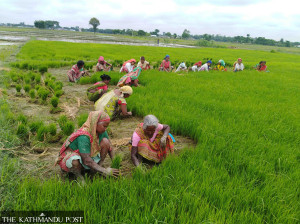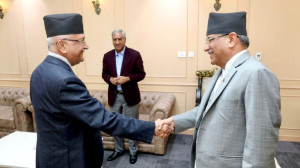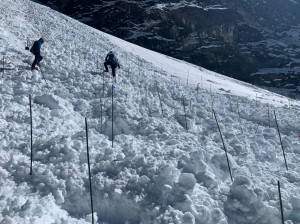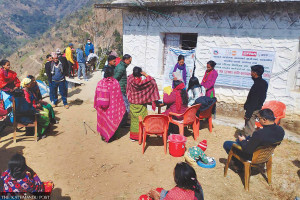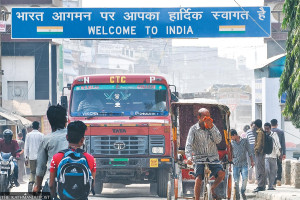 16.12°C Kathmandu
16.12°C KathmanduAs it is
'We don’t need another decade to put the country on the path of progress’
The Panchayat decades were dark. The last three haven’t been too bright either
Mohan Guragain
Two periods in Nepal’s history are marked as dark eras for people’s progress. The first was the 104-year Rana family rule that ended in 1951. The second period, 10 years later, was dominated by the partyless Panchayat polity following the hijacking of hard-earned democracy. The Panchayat came to an end in 1990.
The Ranas had sought to lock Nepalis in their state of poverty, illness and illiteracy—virtually shutting the country’s links to the outer world. The Panchayat was an autocratic rule by two kings—Mahendra and Birendra—until the latter gave in to popular revolt for democracy.
Another period that brought dramatic political changes followed the decade-long People’s War. Following the promulgation of the new constitution in 2015, the country’s federal structure took shape, helmed by a powerful communist-led government that proclaimed it would achieve socialism through capitalist policies.
Many powers are to blame for much of the country’s problems towards the end of the past century, but the time has come for us to assess what Nepal has achieved since the restoration of democracy. This may be viewed best in light of new, ambitious national goals and the grim ground reality.
This reality emerged from a decade-long bloody conflict, long periods of power outages, new constitutional birth pangs and a devastating earthquake. But the rich-poor divide continues to grow and the fundamental social indicators of hygiene, health and education remain dim. Living has become costlier, with essential goods and services coming with higher price tags. Agriculture is not profitable, as the state has failed to ensure markets for farm yields such as fruits, vegetables and dairy products. Owning a home has never been more expensive.
Since 1990, successive elected governments robbed people of their livelihoods by destroying industries in the name of privatisation. The capitalistic management of resources may have increased the country’s economic indicators somehow, but rural Nepalis becoming consumers instead of producers—by spending remittance money—has made our economy dependant on imports and eroded its domestic base.
The decade-long Maoist conflict contributed to the country’s political transformation through its peaceful resolution. Federalism, republicanism and inclusion were inspired by the movement, but the insurgency had set back the country’s physical progress by decades. Industries neglected by elected governments were squeezed harder due to forced donations from their owners. The Maoists also created confusion about the ‘futility of bourgeois education’, driving droves of youths to foreign employment with a heightened sense of insecurity.
This so-called ‘proletariat versus bourgeois’ divide—fuelled by the armed struggle—created hostility in society. The rebels categorised people as ‘supporters’ and ‘enemies’.
Its legacy lies in the general tendency of the political leadership to disown big chunks of its population for belonging to rival parties or to a different ethnicity.
In an effort to right the wrongs, politicians could start with providing opportunities for the marginalised. Showing some effort could hint at a semblance of progress, and perhaps give some hope to the disadvantaged.
It is also time for KP Sharma Oli’s powerful administration to create an action plan on sustainable development. For example, in upcoming projects such as the Nijgadh International Airport, that requires the clearing of hundreds of hectares of dense forest, the government must guarantee the environmental damage is compensated for. This is crucial in respect to current times, with alarming reports of climatic and ecological imbalances all around the world.
Our constitution imagines a society with a socialist tilt. In his recent address to Parliament, Nepali Congress leader Pradeep Giri lashed out at his own party’s foreign-educated long-time finance minister saying that he may be well-versed in Western industrial models but had problems spotting the fundamental differences between paddy and wheat cultivation.
As the communist-led government prepares to unveil its budget for the next fiscal year, Giri cautioned former central bank governor and Finance Minister Yubaraj Khatiwada not to deny people equal opportunities in the quest for high economic growth. He advocated a model of development that minimises economic disparity.
Opposition parties’ and civil society’s major worry, at times, is if the communist-led government will work towards establishing an authoritarian order using its overwhelming mandate. To address this concern, there must be efforts to promote existing constitutional checks and balances.
The past three decades have been a period of upheaval in the country. The last saw extensive deliberation on charting out the political course and deciding the form of federal governance. We don’t need another decade to put the country on the path of progress.
The writer tweets @GuragainMoha











